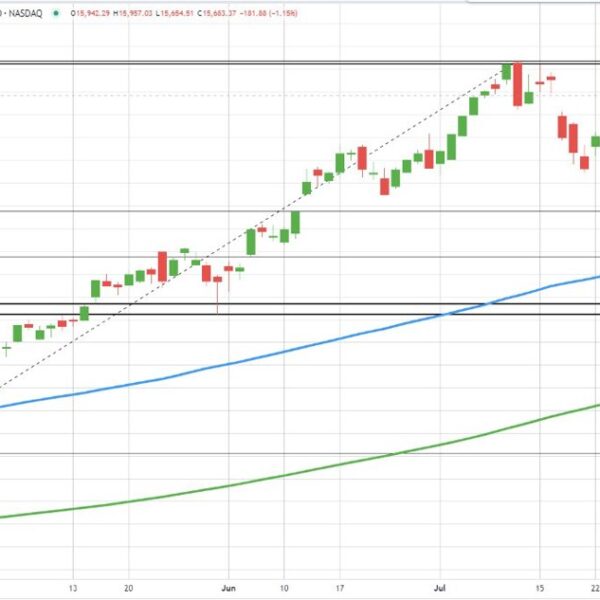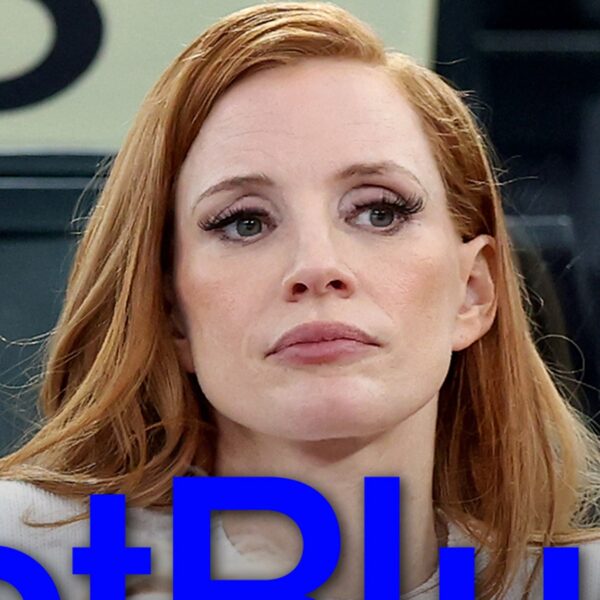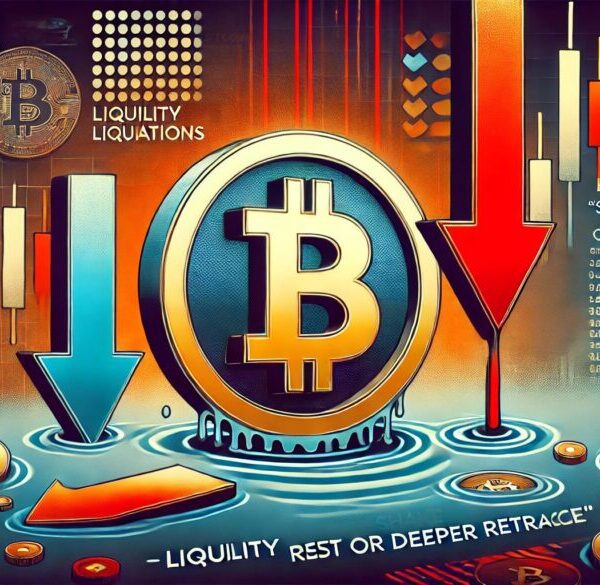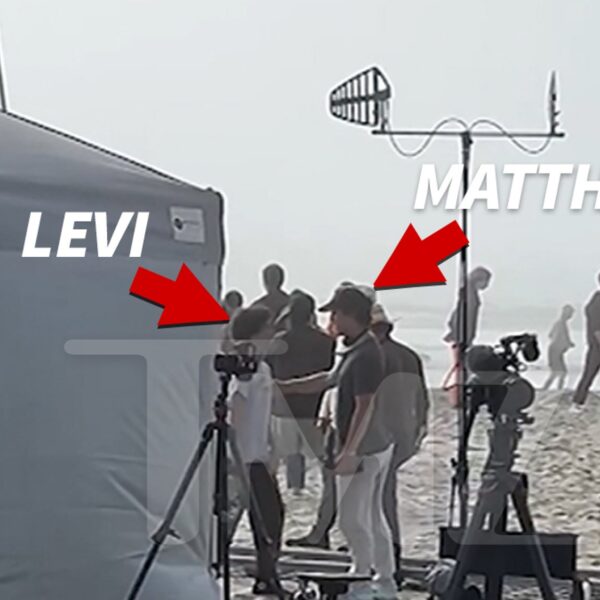

On this episode of Fortune’s Leadership Next podcast, host Diane Brady talks to Daniel Amos, chairman, CEO, and president of Aflac. Just the second generation of leadership since the company was founded in 1955, Amos is the son and nephew of Aflac’s founders. The man behind one of the most famous mascots in advertising history, the Aflac duck, Amos was “a nervous wreck” when the first commercial launched on New Year’s Day of 2000. But he knew the three principles of risk management in insurance were on his side: “Don’t risk a lot for a little. Don’t risk more than you can afford to lose. And consider the odds.”
Amos and Brady also discuss the face masks that launched Aflac’s astronomical growth in Japan; training the next generation to work in what’s, essentially, a family business; and why he believes people will remain essential when it comes to health insurance customer service and sales.
Listen to the episode or read the transcript below.
Transcript
Diane Brady: Leadership Next is powered by the folks at Deloitte who, like me, are exploring the changing roles of business leadership and how CEOs are navigating this change.
Welcome to Leadership Next, the podcast about the changing rules of business leadership. I’m Diane Brady. This week I’m speaking with Dan Amos. He is the chairman and CEO of Aflac. You probably know the insurer. It’s one of the best known in the U.S. Why? Because of that duck that is on the commercials screaming “Aflac,” everywhere we go. That was Dan’s idea. He’s been in the job almost 35 years. This is a company that also gets about 70% of its revenues from Japan. And Dan is only the second CEO in its seven-decade history. Great conversation. A man who feels very strongly about a lot of the values of business, the value of sales, and the value of the human touch in a business that’s very much going online. Hope you enjoy it. Thanks for joining us.
[Interview begins.]
Dan, it’s good to be with you. Thanks for joining us.
Daniel Amos: My pleasure.
Brady: Well, I’m catching you during a very good period. You’ve reported terrific earnings. Your stock has been up. Tell me a little bit about what’s going on.
Amos: Well, you’re right. It is an exciting period. I try to not hit too many highs and too many lows. I like to just methodically make our numbers and go on. But it is fun when everything kind of comes together in a strong manner, and a lot of the things that we had been working on came together and made it for a strong quarter.
Brady: You don’t strike me as a man who follows your stock price in the way that some people treat it like a game of sports.
Amos: I don’t. I never have. I’m not going to sell it. So, if you’re not going to sell it, you don’t have to watch it every day. And I believe the old story people will ask me, I always say, well, why is the stock up? Well, there were more buyers than there were sellers.
Brady: Yup.
Amos: No, I tell them the opposite. There were more sellers than there were buyers. Now, and that’s a true statement. People get on the stock and it gets hot or cold either way, but the rest of it is predominantly driven off your ability to achieve your objectives. And what I look for is, are we achieving our objectives that we promised the Street? And if we do that, we’ll be alright. And one thing I always try to do is tie compensation back to the objectives that will please the Street. And when you do that, you’re in pretty good shape. You can feel a lot safer at night that that everybody’s got their eye on the same thing.
Brady: Well, I think Aflac’s all about feeling safer at night, isn’t it? And I want to, this is a company that has had only two CEOs in almost seven decades, you know? Basically, your dad and your two uncles started it. You took over almost 35 years ago. Let’s start with that. Do you lead any differently now than you’d say even 10, 20 years ago? Don’t want to go back to the very beginning, but what have you learned?
Amos: Well, I think, I hope I’ve gotten better. One thing I’ve done is I have more patience. When I was younger, I didn’t have much patience, and I still, they kid me and say, I’m always pushing, and I am. But I always liked when I came into the business was to go to sales because I liked the objectivity of things versus subjectivity. And to a great degree as a CEO, your scorecard is your earnings report and how you did on it. So it’s always fun to me to set those objectives and then achieve them. And then to have people that are with you that I’ve seen over these last 35 years that a lot of them have retired and moved on, but retired in great financial condition. And that’s been fun. So, I love seeing people grow internally with the company as well.
Brady: I have to ask about that because I know you must get asked a lot. You again, you’re at the top of your game. You’ve just had a terrific quarter. But people might say, Dan, when are you going to retire? Do you think you’ll ever retire?
Amos: Oh, yeah, I do. I think I will retire. I don’t know when. I’m not going to be a very good retiree, but there’s a time and place they say that you’ll know exactly when it’s right. And I know it’s not right now. I really enjoy doing it. You know, I laugh about the fact is I don’t do it for nothing because it’s just part of me. I think part of that is because my Uncle John, who was the CEO and my dad and his brother started it, and although we never had a lot of money, we had to sell the stock door to door. I’ve watched it grow and it’s been fun to do that. And so I think there’s a little bit more of a pride element with me than it may be for some outside people that come in. And so that’s been part of the tradition of the company.
Brady: You know, I’ve always found it fascinating, this is a company that’s kind of in deep Georgia, right? Near Alabama. You get 70% of your sales from Japan. And here in the U.S., a lot of what people know, obviously, the duck, we have to talk about the duck. But it’s supplemental, it’s disability, it’s accident insurance. Let’s give people a little bit of a flavor for how that came to be. Let’s especially start in Japan, where I know your cancer insurance has really been the genesis of how it all began.
Amos: Well, let me go back to the World’s Fair in Osaka, Japan, in 1970. And John Amos, my uncle, who was the CEO, went over to Japan and saw a thriving economy. And back then, he had never seen this, but he saw people wearing surgical masks. Since Covid, of course, we are well aware of that. But he asked why are they wearing surgical masks? And they said, Well, it’s because we’ve got a cold and we don’t want to pass it to someone else. And he went, Let me just tell you, anybody that will do that is health conscious and will buy insurance. And he then spent the next five years getting licensed to do business in Japan. This year will mark our 50th anniversary of doing business in Japan.
Now, the other thing that was interesting is, prior to World War II, the life expectancy of the Japanese were in their late fifties. Today, it’s in the eighties. But during the seventies, when their life expectancy started growing so much, they thought they had an epidemic of cancer going on. When in fact it wasn’t an epidemic, they were living long enough to get it. Cancer is a disease of age. So it became very popular.
But interestingly enough, when we originally started, we wanted to do a joint venture with a company and no one wanted to do it with us because in Japan it’s taboo to talk about cancer. Or it was, it’s not as much anymore. And so you would see people that would die and you’d read the article in the paper and it said they died of a heart attack. Well, they didn’t die of a heart attack, they died of cancer, but they won’t put it in there because some families do not want to marry into the family where there’s a history of cancer. And so that’s the kind of thing.
So when we got into the cancer insurance business, it took off. And what we did was is we paid Xamount of money if you die, but we paid 10 times that amount of money if you died of cancer. And then we paid so much a day for every day you were in the hospital. And that was basically the policy. And it did so well we actually set up shops within department stores and sold it in department stores. And the first year that we started selling, we sold more insurance that year than the first 15 years that the company was in business in the United States.
Brady: It’s interesting, I think of you as the consummate salesman to your point, you started in that. We’re on the cusp right now of maybe not curing cancer, but certainly here in the U.S. it’s become a chronic condition. How does that change the calculus of why people buy life insurance? I mean, can we stick with Japan for a second?
Amos: Well, first of all, today our policies have much more hospital benefits and outpatient treatments, things along that line.. And if you think about it, chronic actually is more costly to the policy. In the early years, you either got cancer and you died or you were cured pretty quickly.
Brady: Yup.
Amos: Today, as you mentioned, it’s chronic in nature, so you might be on those drugs for the rest of your life.
Brady: Yup.
Amos: So that is what people need coverage for, is to help fill the gaps that are associated with the hospitalization that they have. Or in the case of Japan, the national health care and what they offer. And so as we’ve seen co-pays and deductions go up in the United States, we’ve seen that in Japan with the national health care program as well. And it went from zero deductible to 10 to 20 to now 30%. And so that’s out-of-pocket expenses to them. And the other thing is, in Japan, they give you a ward. But if you want a semi-private room, you have to pay up for it. So all of those things add together to help fill. And we sell also hospitalization policies as well to help supplement their existing national health care plan.
[Music starts.]
Jason Girzadas: We’re now starting to see companies deploy AI across the enterprise. The challenge for leaders is how to close the gap between the promise of gen AI and the results achieved so far. We spoke with Jason Girzadas, the CEO of Deloitte US, which is the long-time sponsor of this podcast. Here’s what he had to say.
Jason Girzadas: I think every CEO and board interaction and conversation that I’m a part of proves the fact that the promise of AI is widely held, and the hope is far and deep that it creates business value. But there’s challenges, to be sure. What we’ve seen is that the probability of success increases dramatically with strong executive sponsorship and leadership. There has to be a portfolio of investments around AI, as well as to link the business ownership with technology leadership to see the value of AI related investments. Over time we’re optimistic and confident that the value will result, but it will be a portfolio where other short-term opportunities for automation improvements around productivity and cost takeout, and then longer-term medium-term opportunities for business model innovation that are truly transformational. So, this is a classic case where it won’t be a single approach that realizes value for AI.
[Music ends.]
Brady: You know, as you’re talking, I’m thinking a lot about the role that government and regulation plays in this. I’d love to hear your thoughts on the regulatory landscape right now. When people think about insurance, it’s almost like thinking about your finances. It’s a topic that induces a lot of stress, a lot of fear. How do you think the regulatory environment is helping or harming our ability to really protect ourselves against the cover that you give us?
Amos: I think most people don’t understand insurance and they need some advice or help in knowing what to do. In Japan, it’s simpler because everyone’s under the same health care system. So if I grab someone on a train and ask them, they all have the same policy so they’re more likely to know what it is. But in the U.S., it’s with different accounts or payroll deduction accounts or groups and, say, Starbucks may be one that we have on payroll, which we do. They have one type of major medical. And Dr. Pepper is another one that we have. And then a lot of small companies too. In those cases, they don’t know. And what has always helped us is to sell our product in an employer-employee environment. So the employee then has a level of confidence that if the employer is offering it, even though I’m paying for it, they’re saying I probably need it to some degree. And so they’re buying the coverage and they’re getting a better price because it’s being sold in an employer-employee environment where you get three things. You get younger people, you get healthier people, and you get the employer telling them they need to come back to work. So when you have those three elements, you’re going to have a healthier block of business and you can give them better rates than they could if they bought it on an individual basis. So the consumer feels safer because the employer offers it. And all in all, we can give higher benefits and offer better products through that distribution channel both in the U.S. and in Japan.
Brady: What if those benefits are taxed? Because that’s one of the things that people talk about now. I mean, is that, do you think government understands the role that you play? Let’s take it here in the U.S.
Amos: Well, they have in Japan never really tried to tax benefits. They considered it in the United States, but they decided not to do it within the last year or so. What I would say is, if you’ve paid the premiums, I don’t think, you don’t make money in health care. You’re going to, as a general rule, you’ve got expenses that are actual expenses. But then you have expenses that are non-medical. For example, someone has cancer, they have it in Columbus, where our headquarters are located. They need to go to Johns Hopkins or Emory or any of the major — Sloan Kettering. And yes, a hospitalization would be covered at Sloan Kettering in New York City, but you’re going to either have to sleep in the room where your spouse is or you’re going to have to get a hotel room. It’s not going to cover the hotel room in New York City. Most of them won’t cover your airfare as a patient, but it certainly won’t cover the spouse. So there are all these outside expenses that you don’t think of with illnesses that can really run up the tab and take a lot of money out of pocket. Well, those people that are in that situation, they need the money.
Brady: Yeah, it’s true. That’s why most of them go bankrupt.
Amos: I don’t know anybody that buys health insurance to make money.
Brady: No, it’s absolutely true.
Amos: They’re doing it to figure out how to cover the gaps that are created in their coverage.
Brady: Let’s talk about the duck. I mean, I know that you get asked about it a lot, but in all honesty, you picked it. You picked the duck over Ray Romano way back when.
Amos: That’s right. You’ve got a good memory.
Brady: Talk about the Aflac duck. I think you’ve got more brand recognition than certainly any insurer, but probably most consumer products out there in the U.S. now. What was it about the duck that appealed to you?
Amos: Well, I’m a big believer in research. Don’t tell me you think. Prove to me statisically that that’s the case. And so what we did was, we had been running commercials for 10 years, and the number really hadn’t changed that much. We went from about 3% to about 9%. But I thought, I’ll be dead before they’ll get to any number that matters.
Brady: This is brand recognition?
Amos: So I’m, sorry?
Brady: You said the 9%. That’s brand recognition of Aflac.
Amos: I’m sorry, brand recognition. And so I said, let’s try something bold. And so we went out to different companies, let them bid or come up with their ideas, and then we had storyboards and saw it. And one was the Aflac duck. And it was, it was scary.
Brady: Scary?
Amos: I said I’ll do anything if it’s tastefully done. But you were really making fun of your name.
Brady: Mmhmm.
Amos: And having a duck do it, I was a nervous wreck. But in business, and I majored in risk management in insurance, is that there are three principles of risk management in insurance. Don’t risk a lot for a little. Don’t risk more than you can afford to lose. And consider the odds.
Brady: Mm hmm.
Amos: And we knew that this commercial or storyboard had tested three times higher than any commercial we had ever run, and the national average on what financial services do. It did three times better. And financial services is a really difficult area. And insurance does worse than banks because banks you interact with daily, weekly, or whatever, writing checks or whatever. But an insurance company, you may not have any issues until you have a hospitalization claim or some hospital issue or, unfortunately, death. So you don’t interact as much and the smaller amount of impact you have, the lower the name recognition. So we ended up saying, okay, we’ll try this. The commercial was going to cost a million dollars. We had normally spent about $500,000 or a little less on commercials. We went with it on Millennial Day, which would have been 2000. January 1, 2000. And it took off. And within a matter of three years, we had doubled our sales. Our name recognition had gone to 90% in the high eighties, 90% it eventually got to. And today we’re one of the strongest brands in America.
Brady: Yeah, we have a couple of your ducks around here actually. Squeeze their belly and out it comes.
Amos: Good. You need more, let me know.
Brady: Brand ambassadors, the whole lot of us. Let me, you mentioned that you studied risk management. I want to take it back to the personal. I mentioned at the beginning that you’re the second generation now to lead this company. And I know your kids have been involved. How do you, a family business, which even though I know it’s not controlled by you, I still think of it as a family business and those values come through. How do you pass that along to the next generation? Because that’s one of the biggest challenges of any, you know, leader of a family-owned company or family-controlled or family-run company that I meet.
Amos: Well, you try to put them in a position where they can see if they like the business, enjoy the business. I’ve got one child that wanted to get involved and liked it, and then decided that wasn’t for him, that he wanted to do private equity and decided to do it. I’ve got another one that’s in the fashion business and she has a couple of stores, and I don’t have any brothers or sisters, but I have first cousins who have children that work for the company. And so, you just open the door and let them have an opportunity to do well, but they’ve got to pull their load.
I remember my dad, when I told him I wanted to go in sales. He had been in sales, and he said, Now you do understand, son, that if you do poorly, your uncle isn’t going to bail you out nor am I. And I’m going to be the one that comes in and tells you you need to get out of the business. And I said, Yes, sir, I know. When you set it subjective, you can debate it. But when you say you’ve got to do X, or you make or break, then I know what that means. But on the other hand, I know there’s that sonny-boy syndrome of people that say, Well, you got it because of family. You may have gotten a break because you were family, but you don’t keep it because of that.
Brady: Right. Exactly.
Amos: And so you have to prove yourself. So I’ve always said go into an area that is objective, not subjective, and you can see what happens.
Brady: So let’s end with what else is on your radar that you want to put on mine, whether it’s what’s around the corner for the company, Dan, or what’s intriguing to you right now?
Amos: Well, I am a very focused human being and I like to stay focused. And I tell my employees all the time, I like evolution, not revolution. And so I want to constantly be growing, but I want to be a growing in a manner that we can control. So as the market is changing, it’s opening doors for us to get into other businesses, like, for example, dental and vision, that we bought a small company and we’re into that business and we think it has potential. And there’s this other business we call [hard to hear], but it deals with disability and handling the administration. These are things I think are going to grow our business long term. And so I’m excited about the future. It is interesting times and with AI and all the things that are out there, I still believe consumers want to handle claims with an individual, not a computer.
Brady: Mm hmm.
Amos: And so I always see the sales force as being an important opportunity. For example, in our company, if you have cancer claims, we’ve got special lines that you call in that are, no, it’s all individuals. No computer driven. For a wellness claim that you’re healthy, you had a test and you want to get paid on it, the computer will handle it. But important issues, we want to make sure people feel important and that they know we care about them. And so that’s one of our jobs is to protect our brand. You know, the Aflac duck is worth a lot of money in terms of brand recognition. And it takes a lifetime to build a brand and it takes about one minute to ruin a brand. And how you protect it and what you do is so important.
Brady: I think one of my other favorite quotes from you is the fact that, I guess, policies are sold, not bought, right?
Amos: That’s exactly right.
Brady: Human connection. I think, I can’t think of wiser words than that, and sometimes we forget it. Dan, it’s a pleasure to see you. Pleasure to speak with you. And I really appreciate you joining us.
Amos: Thank you for having me.
Brady: Leadership Next is edited by Nicole Vergalla. Our audio engineer is Natasha Ortiz. Our executive producer is Chris Joslin. Our producer is Mason Cohn. Our theme is by Jason Snell. Leadership Next is a production of Fortune Media.
Leadership Next episodes are produced by Fortune‘s editorial team. The views and opinions expressed by podcast speakers and guests are solely their own and do not reflect the opinions of Deloitte or its personnel. Nor does Deloitte advocate or endorse any individuals or entities featured on the episodes.


